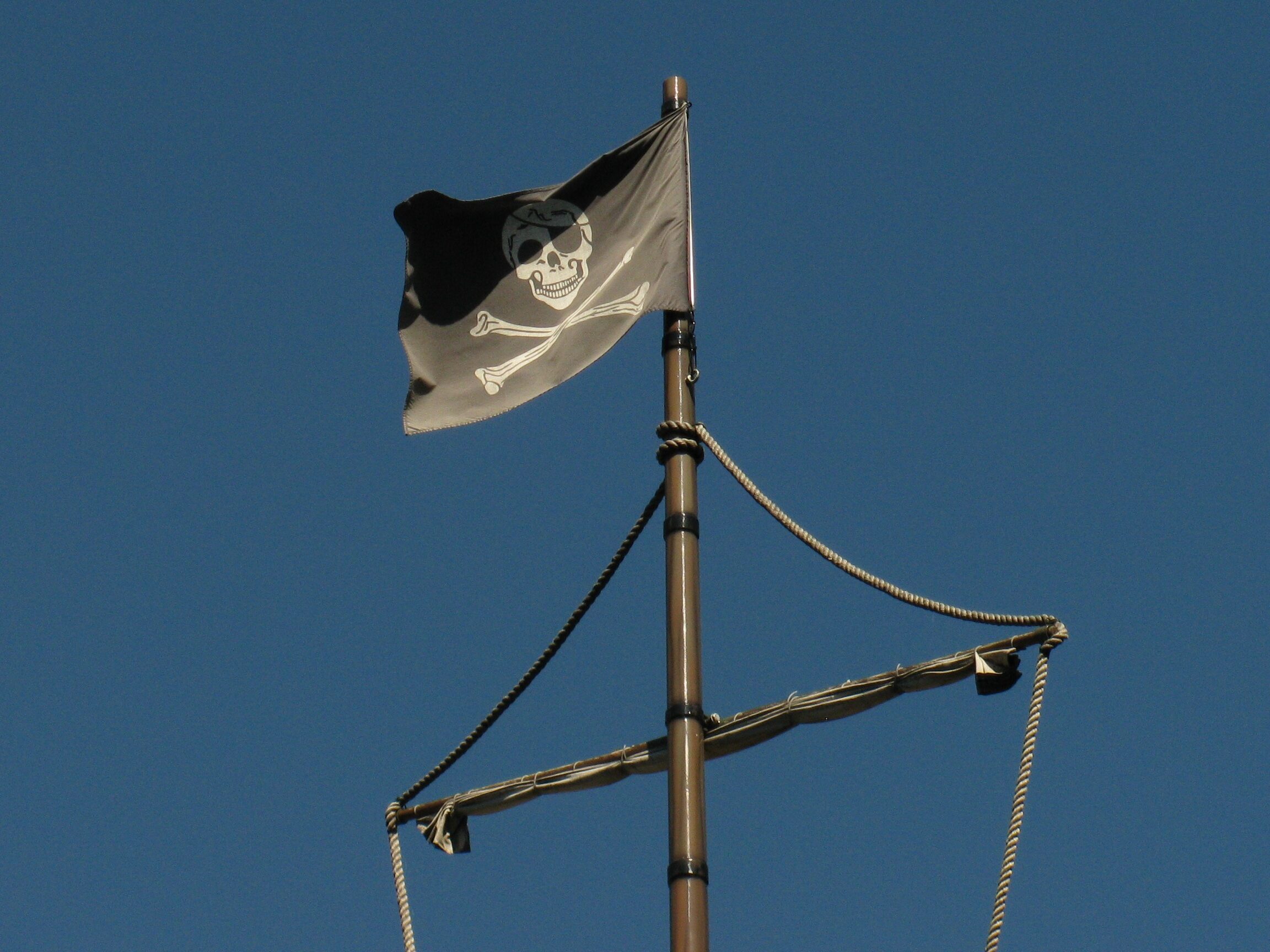I am an artist, a writer, and yes, a pirate.1 But I am not a thief.
Digital piracy – and IP infringement more broadly – is not theft. IP law enables consistent abuse and deprivation more comparable to “theft” than piracy is. IP is damaging, outdated, and needs nothing short of complete legislative reform. But, to quote Nina Paley:
“My life is too short to focus on legislation when I could be making art. So I’m not a copyright reformer, I’m a copyright (IP) abolitionist.”
Piracy is protest.
This is the first entry in a larger series on IP Abolition.
To begin, copyright infringement, including digital piracy, is not legally equated with theft. From the Supreme Court case Dowling v. United States: “interference with copyright does not easily equate with theft, conversion, or fraud. The infringer of a copyright does not assume physical control over the copyright, nor wholly deprive its owner of its use.” Copyright infringement would only be theft if the owner was deprived of using their property.2 The Government argued that deprivation of rights is still deprivation, and therefore theft. But, the above ruling holds that copyright infringement does not deprive the owner of any rights. For an easier to digest sister to The Supreme Court’s ruling, see the image in this article about copying vs theft.
The No Electronic Theft (NET) Act legally links copyright infringement with theft. Except, it doesn’t. The NET Act does not refer to theft at all except in the title. Indeed, a 2021 Texas Supreme court case ruled “…the violation of a copyright, without more, is not a taking of copyright.” The court explicitly ruled infringement was trespass into exclusive domain, not theft. A 2021 study into 50 Harvard lawyers found they “…do not equate digital piracy with physical theft, and are generally very tolerant or even supportive of it.” Despite the NET Act’s name, copyright infringement remains legally distinct from theft.
I wanted to find sources the average searcher would, so I searched3 variations on “is piracy theft.” Of the sixteen search results I considered, only Wikipedia mentioned the Supreme Court case, and only one result mentions the NET act by name. In fact, of the eight results that explicitly called digital piracy theft, at most two supported that claim with any form of legal opinion or ruling. The rest were, from what I could tell, disagreeing (or unaware of) with The Supreme Court on legally unsubstantiated grounds. This points to my first true gripe outside of semantics: the sneaky conflation of denotation and connotation.
Of course, “theft” is probably meant colloquially, not legally. After all, “digital piracy” isn’t remotely comparable to legally defined piracy. However, when theft is used alongside, “illegal,” “civil penalties,” “unauthorized,” and in some cases, references to existing bills and court cases, this argument seems facetious. Using theft alongside technical language frames it as an accurate legal descriptor, even if the word is meant casually. That, or theft is meant technically, and is simply inaccurate. Denouncing digital pirates as thieves does not engage with the technical ramifications of that statement or the arguments made by critics of the IP system.
Which leads me to the problem with this blog post: I haven’t argued for piracy at all. Theft or not, copyright infringement is still illegal, and separating it from theft does nothing to speak on its impact or to meaningfully critique IP law itself. The next entry into this series: Digital Piracy is (Not) a Victimless Crime, will pull back the curtain to more fundamental issues I take with IP and the attitudes surrounding it.
A source list with some personal notes is downloadable below. If you’re interested in IP abolition, the c4sif resources page has everything and more. The Copyright Alliance copyright law page is my go to for specific info about copyright law. Go educate yourself!
- I am not claiming to engage in IP infringement. “I am a pirate” is a purely rhetorical sentiment, and I am only claiming support of piracy, not participation in it. ↩︎
- I am not a legal expert. I very likely made some mistakes in viewing documents and my observations should not be taken as legal advice. ↩︎
- To choose the articles, I used the first results on DuckDuckGo and omitted a few results, namely Reddit posts and unrelated results that happened to contain the searched keywords. ↩︎

2 Comments
Very interesting topic where right and wrong can get a little foggy in my opinion. I pirate a lot of movies and TV shows online because I would simply rather watch them for free, and they already exist on the database of the website, so you could say I am not necessarily contributing to the “theft” of their movies. Another point is in this case, the movie companies are worth billions of dollars and my $10 movie fee being taken away from these companies has negligible impacts on their companies (again this does not excuse any crime, but is important to note). I’m glad there are others who share a similar view and I think most people would be surprised by the amount of people that pirate content like music and TV shows/movies.